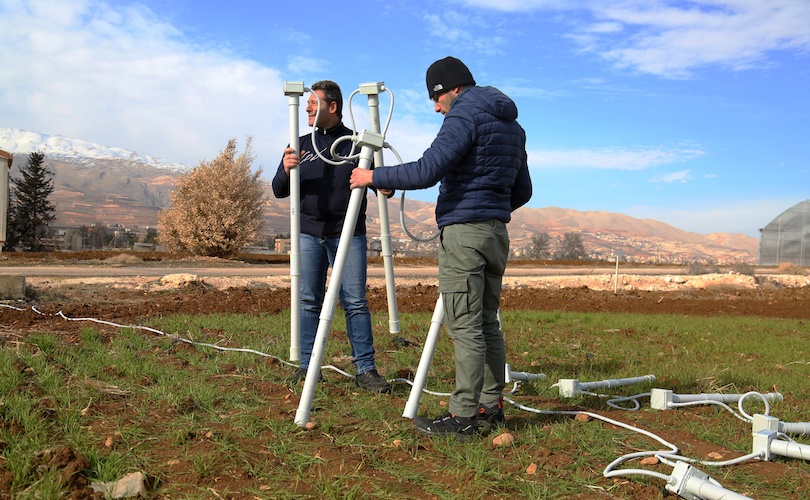Lebanon sets sights on being R&D hub for the Middle East

It’s all about sharing.
That is what former Nokia Technologies president, Ramzi Haidamus, thinks when it comes to a country benefitting for a good R&D plan.
“It all starts with culture and education,” he said during a recent roundtable hosted by the UK Lebanon Tech Hub (UKLTH). The aim of the roundtable, moderated by Wamda, was to look at how Lebanon could move forward in the R&D landscape.

“One of the things that make Silicon Valley special,” he said, “is that people are very generous with information. They give and they pay it forward. It might feel like you are losing an advantage, but eventually you get so much more than you gave. Our reluctance to give information is, arguably, something innate to us as Lebanese. But we need to change this, and set the example as business leaders. We need to practice what we preach.”
Despite its vast intellectual and academic capital, Lebanon still lags in comparison with developed countries. Its gross expenditure on research and development (GERD) in 2013 was approximately 0.22 percent, which is below the regional average of 0.3 percent, and almost eight times less than the UK.

“Research is considered the most salient example of a country’s intellectual resources, economic strength and global competitiveness,” said UNESCO’s 2010 Science Report for the Arab States. While improving the state of research requires a long term joint strategy involving government, academia and the private sector, an increase in the allocation of funds can go a long way in bringing this gradual change about.
Private funding for applied research
One step to solving this issue has been made by the UKLTH. They're establishing an International Research Center (IRC) funded with $3.2 million dollars so far, by the British Embassy in Beirut. Its mandate is to fund and support applied research projects.
“The International Research Center will act as the bridge between the abundant knowledge capability in Lebanese universities and the global tech industry,” said the UK’s ambassador, Hugo Shorter, at Arabnet Beirut, in February.
A year prior, the UKLTH published The future of Lebanon’s knowledge economy, a comprehensive study of the Lebanese knowledge economy. It highlighted the importance of investment in applied research as a stepping stone to making Lebanon a “must-go-to supplier of innovative technology by 2025”. That is why International Research Center was created.
The report also found three main up and coming sectors in the Lebanese knowledge economy - Fintech, Wellbeing, and Visualization. To explore these further with industry experts, the hub held 3 sector-specific focus groups during the two day event.

“The point is not to create a product out of every basic researcher, and not turn every marketer into a science geek but instead, maybe cultivating a mid-ground,” said Colm Reilly, CEO of UKLTH, moderator of the Wellbeing focus group.
The focus groups and roundtable participants brought forth several features for applied research in these sectors to really thrive.
Bridging the academia-business gap - “We live in a cocoon. Inviting us to places like this is very important. Everything I hear today is new”, said Dr. Assaad Eid. One of the very first UKLTH funded researchers, working a non-invasive continuous glucose monitoring device. Just a group discussion like this alone gave him more insight into what goes on outside of the research stage. Fadi Bizri of B&Y Venture Partners agreed, stating that when it came to new fields guidance was important for investors like him.
Collaborating in fundraising - “Research is relatively low on the the priority scale when it comes to donor's wishes”, remarked Dr. Bassam Tabshouri, Director of Medical Engineering dept. at AUB. Similarly, venture capitals operating under Banque du Liban’s (BDL) circular 331 do not deploy capital into research, as the equity guarantee does not cover it. “Maybe we should ultimately lobby for a circular 332, specific to research” said Ralph Khairallah, Entrepreneurship Lecturer at USEK & co-founder at Carpolo. The attendants saw an urgent need for partnership between private and academic fundraisers to create such avenues.
Establishing Technology Transfer units in universities - Value was placed on the importance of incentivizing students to engage in the field through a series of cross-disciplinary academic tracks, and protecting the intellectual property that they work on. University Technology Transfer units can facilitate this process. These units would be in charge of streamlining the research-to-product pipeline, and creating the necessary academic, business and legal structures to support it.
Stressing the need for Government support - “The private sector can do so much,” said Danny Karam, vice president of Digital Life and Data Analytics at Booz Allen Hamilton . “But at the end of the day, without adequate and active government support providing the required foundational enablers, we will make step changes, but never leapfrog to the global leading positions we are dreaming of." There were also recommendations on infrastructure, budgetary allocations and intellectual property. Reiterating a suggestion he made on the report, Ramzi Haidamus suggested the establishment of a free trade zone (FTZ) in Lebanon. He cited it could “be a beachhead for regulatory reform that would follow later on.”
As is the case in many nascent research ecosystems, the challenges are many. It was nevertheless clear that resources and opportunities are abundant in Lebanon. The UKLTH will move forward with the deployment of its International Research Center, paying careful attention to the recommendations heard during the sector-specific focus groups, and the R&D roundtable.


